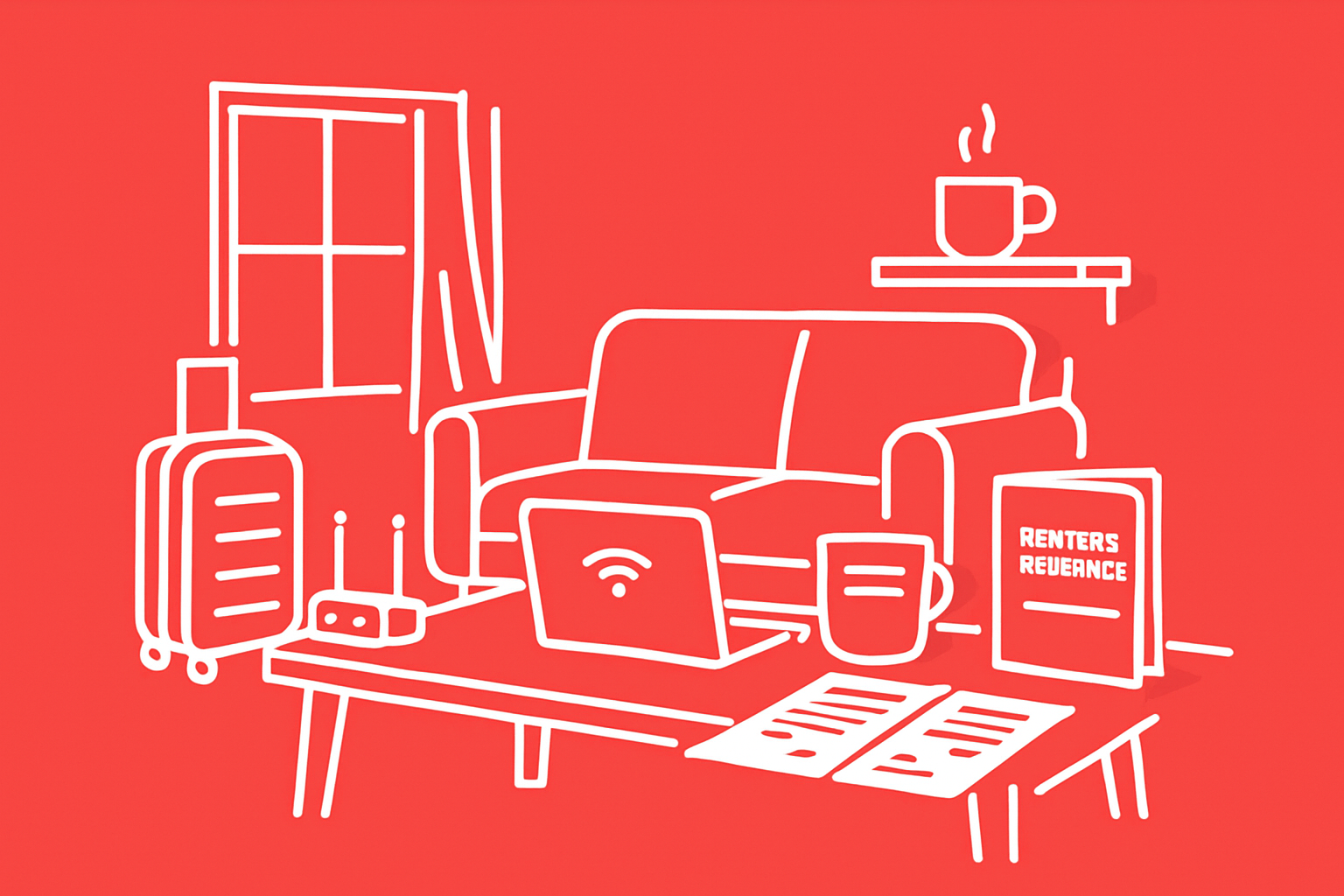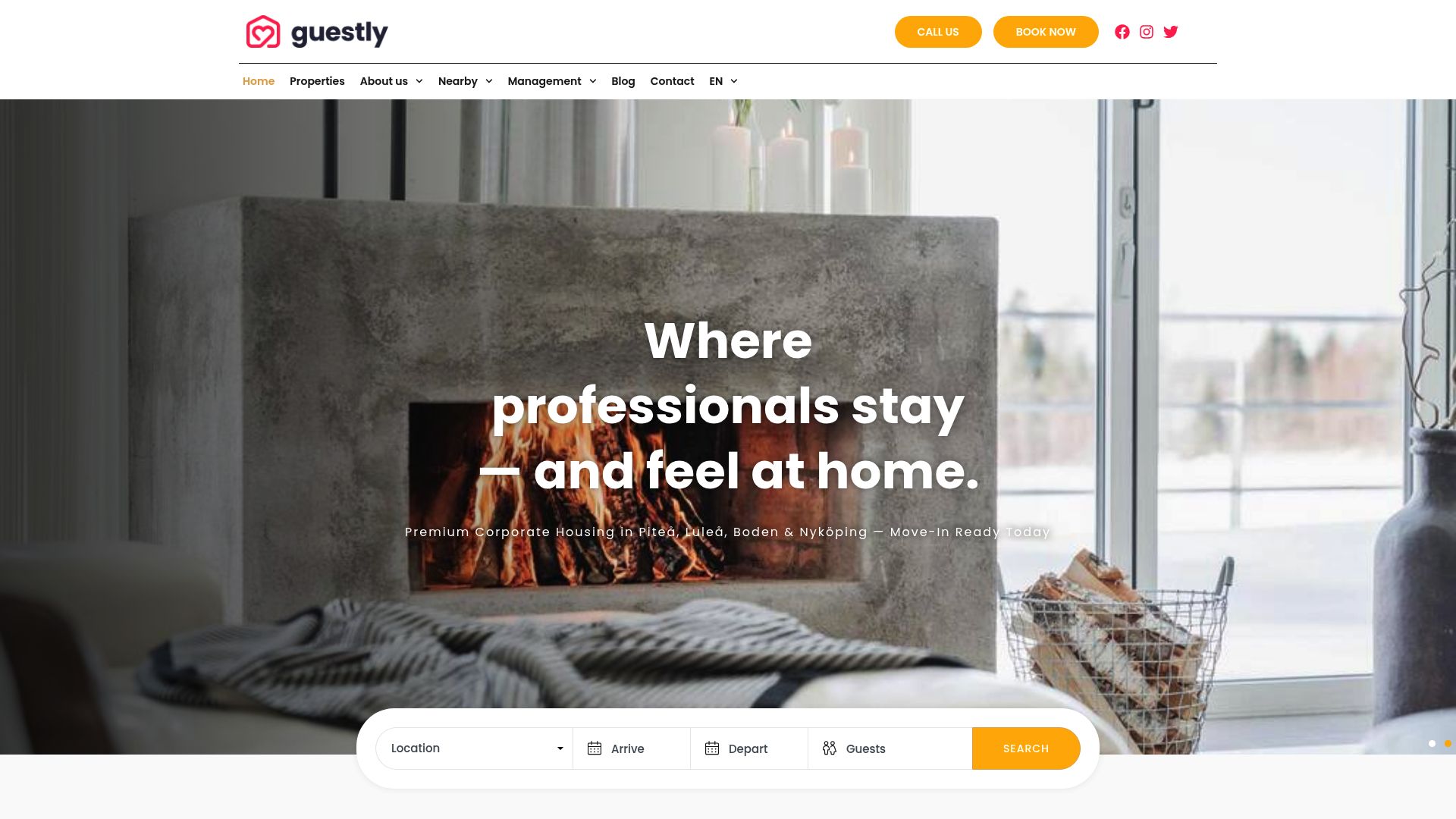|
Getting your Trinity Audio player ready...
|
Dreaming of living abroad or relocating for work in 2025? The world of international house rentals is changing quickly, opening up new opportunities and fresh challenges for adventurous renters and professionals alike.
In this guide, you’ll discover everything you need to know to navigate international house rentals with confidence. As global mobility and remote work surge, more people are seeking rentals worldwide—but the process can feel overwhelming.
We’ll reveal the best platforms, legal tips, and insider strategies so you can avoid common pitfalls, negotiate your lease, and settle in smoothly. Ready to take the next step? Follow this step-by-step guide to secure the perfect international house rentals experience in 2025.
Expect insights on market trends, the rental process, legal essentials, budgeting, and practical advice for a seamless move.
Understanding the 2025 International Rental Market
The landscape of international house rentals is undergoing rapid transformation as we enter 2025. With millions of people seeking new opportunities abroad, global rental demand has hit record highs. According to recent UN migration data and Knight Frank’s 2024 reports, cross-border moves and long-term stays are trending upward. More individuals and families are considering international house rentals for both work and lifestyle, making it crucial to understand how the market is evolving.

Major Trends Shaping the Market
Several key trends are redefining international house rentals. The rise of remote work and digital nomad visas has created unprecedented flexibility, allowing renters to choose locations based on lifestyle, not just employment. Flexible lease terms are now the norm, with many landlords offering month-to-month or customizable contracts. For a detailed look at how technology and changing work patterns are influencing the market, check out the Global Rental Market Trends 2025.
Top Destinations and Rental Types in 2025
Popular destinations for international house rentals include Portugal, Sweden, Spain, and Mexico. These countries attract renters with their quality of life, affordability, and supportive visa programs. Rental options have become more diverse, ranging from short-term apartments and serviced residences to long-term leases and co-living spaces. Digital nomads often prioritize amenities like coworking access and high-speed WiFi, while families may seek neighborhoods near schools and parks.
Technology’s Impact on International House Rentals
Technology is revolutionizing how international house rentals are found and secured. AI-powered rental platforms now streamline everything from property matching to contract signing. Virtual tours and 3D walkthroughs let renters inspect homes from anywhere in the world, reducing the need for in-person visits. Digital contracts and secure payment solutions are making cross-border transactions safer and more efficient. This tech-driven evolution means relocating is more accessible than ever.
Regional Differences and Common Challenges
Processes for international house rentals can vary dramatically by region. In Europe, renters might encounter strict tenant protections and detailed registration requirements. In contrast, some Asian and Latin American markets offer more flexibility but may lack standardized leases. Language barriers, local regulations, and cultural differences often present challenges, especially for first-time international renters. Understanding the nuances of each market is essential for a smooth rental experience.
Growth of Online Platforms and Marketplaces
The surge in international house rentals is reflected in the rapid expansion of platforms like Airbnb, Booking.com, and specialized local agencies. These platforms offer a wide range of verified listings, user reviews, and support services to help renters navigate unfamiliar markets. As demand grows, expect even more innovation and choice in the international house rentals market, making it easier than ever to find your next home abroad.
Step-by-Step Process for Renting a House Internationally
Embarking on your journey with international house rentals can feel overwhelming, but breaking it down step by step makes the process clear and manageable. Whether you’re moving for work, study, or adventure, following these stages helps you secure the right home and avoid common pitfalls.

Research and Define Your Needs
Before diving into international house rentals, start by defining your must-haves. Think about your budget, preferred location, property size, and required amenities. Do you need a pet-friendly space or a home office?
Make a list:
- Monthly rent limit
- Desired neighborhoods
- Must-have amenities (WiFi, laundry, parking)
- Proximity to work, school, or public transit
For digital nomads, factors like high-speed internet and coworking spaces are non-negotiable. By identifying your priorities early, you save time and avoid unsuitable options in the international house rentals market.
Finding Reliable Rental Platforms and Agents
Your next step is finding trustworthy sources for international house rentals. Stick to reputable global platforms and local agencies with strong reviews. Always vet agents—look for verified listings, read user feedback, and request video calls to confirm legitimacy.
Platforms like HousingAnywhere and Spotahome are popular for secure, verified options. For a curated list of top platforms, check the Best Rental Listing Websites to streamline your search. This approach helps you avoid scams and ensures a safer experience with international house rentals.
Virtual Tours and Property Inspections
With travel restrictions and busy schedules, virtual tours have become essential in international house rentals. Schedule live video walkthroughs with landlords or agents to get a real sense of the property.
During virtual tours, pay attention to:
- Signs of hidden damage (peeling paint, mold)
- Natural light and noise levels
- The neighborhood surroundings
Many platforms now offer 3D walkthroughs, letting you “walk” through the home remotely. This step is crucial for making informed decisions and avoiding surprises when renting internationally.
Understanding Rental Contracts and Legalities
Rental contracts for international house rentals can vary significantly between countries. Always review key terms: security deposit, lease duration, termination clauses, and subletting rules. Pay close attention to local legal requirements, like registration or residency permits.
For example, lease agreements in the EU often offer more tenant protections than those in parts of Asia. If unsure, consult a local expert or expat group. Knowing your rights helps you navigate the legal landscape of international house rentals with confidence.
Budgeting and Financial Planning
Budgeting smartly is fundamental in international house rentals. Calculate not only the monthly rent but also utilities, deposits, agency fees, and insurance.
Typical costs to factor in:
- Rent and security deposit
- Utilities (electricity, water, internet)
- Agency or platform fees
- Local taxes and renter’s insurance
For example, average expat rents in major cities (per Numbeo 2024): Lisbon – €1,200, Stockholm – €1,500, Berlin – €1,300. Considering currency exchange rates and payment methods can help you avoid financial surprises in international house rentals.
Application and Approval Process
Applying for international house rentals usually requires submitting several documents. Common requirements include:
- Valid passport and visa
- Proof of income or employment
- References from previous landlords
Approval timelines can vary. Some cities offer fast-track approvals for professionals in relocation programs, while others take longer. Prepare all documents in advance to speed up the process and secure your preferred international house rentals quickly.
Move-In Preparation and Checklist
Once approved, prepare for a smooth move-in to your new international house rentals. Arrange for utilities setup, internet installation, and any necessary furniture if the property is unfurnished.
Use a checklist:
- Confirm move-in date and key handover
- Set up electricity, water, gas, and WiFi
- Inspect the property for any outstanding issues
Relocation agencies often provide detailed checklists to help expats settle in efficiently. Being organized at this stage ensures a stress-free start in your international house rentals journey.
Navigating Legal, Visa, and Tax Considerations
Understanding the legal side of international house rentals is crucial for a smooth and stress-free experience. Whether you’re relocating for work, study, or adventure, preparing for visa, tax, and legal requirements will help you avoid surprises and costly mistakes.

Navigating Visa and Entry Requirements
Before signing any lease, check which visa you’ll need for your destination. Popular options for international house rentals include digital nomad, student, and work visas. Some countries, like Portugal and Spain, offer special programs for remote workers, while others require proof of employment or study.
Visa processing times and requirements vary. Always confirm if your visa allows long-term stays and renting property.
Registering Your Address Locally
Many countries require you to register your address soon after moving in. This step is often needed for tax purposes, opening a bank account, or getting healthcare. In Sweden, for example, registering your address is mandatory within days of arrival.
Check local rules with your landlord or agent. Failing to register can lead to fines or visa issues, so stay informed about your international house rentals obligations.
Taxation and Double Taxation
If you’re earning income or paying rent abroad, tax rules can get complicated. Some countries tax rental income, while others focus on local consumption taxes. Double taxation agreements between countries can help you avoid being taxed twice.
Research if you need to file taxes locally or in your home country. Consulting a tax advisor with international house rentals experience is wise, especially if you’re a long-term expat.
Tenant Rights and Responsibilities
Tenant protection laws differ widely. In Sweden, renters enjoy strong rights, including strict eviction rules and deposit limits. In contrast, some markets offer more flexibility but less security.
Understand your lease terms: deposits, notice periods, and subletting rules. Make sure your international house rentals contract includes clear responsibilities for repairs and maintenance.
Insurance and Liability
Landlords may require renter’s insurance or liability coverage. This protects your belongings and covers damages you might cause to the property. International house rentals in serviced apartments often bundle insurance, but with private landlords, you usually arrange it yourself.
Compare local insurance providers and check if policies cover expats or short-term stays.
Avoiding Common Legal Pitfalls
Language barriers and unfamiliar paperwork can lead to misunderstandings. Always get a translated lease if you’re unsure. Watch out for scams—never send money to unverified landlords.
Work with reputable agents and use secure rental platforms to minimize risks. Read reviews and ask for references before making payments for international house rentals.
Recent Legal Changes and Updates
Rental laws are evolving quickly as more people move internationally. For example, some countries have updated eviction rules and landlord obligations in 2024–2025. Stay informed by checking recent reports, like the Q3 2025 Global Rental Market Guide, for up-to-date legal insights.
Understanding these changes will help you stay compliant and make better decisions on your international house rentals journey.
Budgeting and Cost Optimization for International Rentals
Budgeting is the backbone of a successful move when exploring international house rentals. With global prices and living costs varying dramatically, careful planning can make all the difference between a smooth relocation and unexpected financial stress.
Comparing Rental Prices Across Top Expat Cities
Rental prices for international house rentals can differ widely, even within Europe. For example, average monthly costs (2024 data) for a one-bedroom city-center apartment are:
| City | Avg. Rent (EUR/month) |
|---|---|
| Berlin | €1,250 |
| Lisbon | €1,350 |
| Stockholm | €1,500 |
These numbers reflect only base rent. Expat cost-of-living indices, such as those from Expatistan and Mercer, reveal that housing often accounts for over 35% of monthly expenses in these cities. Understanding these benchmarks helps you set realistic expectations when searching for international house rentals.
Hidden Costs and Real-World Examples
Beyond base rent, international house rentals include hidden costs that can catch newcomers off guard. Common additional expenses are:
- Utilities (electricity, water, gas)
- Maintenance fees
- Agency commissions
- Local taxes
- Internet and insurance
For example, a typical expat renting in Barcelona may pay €1,200 for rent, €100–€150 for utilities, €75 for internet, and a one-time agency fee of one month’s rent. Always request a full cost breakdown to avoid surprises and to budget accurately for international house rentals.
Negotiating and Saving on International Rentals
Not all prices are set in stone. Negotiation is common, especially for longer stays or off-season rentals. Consider these strategies to maximize your savings with international house rentals:
- Target move-in dates outside peak demand periods.
- Look for shared accommodations or co-living spaces.
- Negotiate for long-term discounts or included utilities.
- Compare offers from multiple platforms and local agencies.
Flexible leases are a major trend in 2025, offering more negotiable terms and potential savings. For a deeper dive into flexible agreements and their benefits, check out the Flexible Rentals Guide.
Currency Fluctuations and Payment Solutions
Currency exchange rates can heavily impact your total spend on international house rentals. Even small fluctuations can add up over months. To mitigate this:
- Use international banking apps with low or no conversion fees.
- Pay in local currency whenever possible.
- Consider locking in rates for long-term contracts.
Many expats now rely on digital payment solutions and multi-currency accounts to streamline rent payments abroad. Factoring in these details ensures your international house rentals experience remains both cost-effective and hassle-free.
Settling In: Making Your International Rental Feel Like Home
Moving into a new space abroad is more than just unpacking boxes. The real magic happens when you start turning your rental into a comfortable, functional, and welcoming home. For those navigating international house rentals, settling in smoothly is key to thriving in your new country.
Setting Up Utilities, Internet, and Local Services
One of the first steps when moving into international house rentals is getting your utilities and internet up and running. In many countries, you’ll need to contact local providers for electricity, water, and gas. Start early, as setup times can vary—Europe often takes a week, while some Asian cities may take just a few days.
For internet, research the fastest local ISPs and check coverage in your neighborhood. Many serviced apartments for business travelers include utilities and high-speed internet, streamlining the process for newcomers. If you’re in a furnished rental, double-check which services are already connected and which require your action.
Don’t forget to set up waste collection and, if needed, home insurance. Making these arrangements ensures your international house rentals experience is hassle-free from day one.
Community Integration and Local Support
Settling into international house rentals means more than just organizing your home—it’s about connecting with your new community. Seek out expat groups, coworking spaces, or language exchange meetups. These networks offer advice, friendship, and a sense of belonging.
Use language apps and translation tools to bridge communication gaps. Many cities have active expat forums and Facebook groups where you can ask questions and get local tips. Attending local events or joining hobby clubs can help you feel at home faster.
Remember, support is never far away. Building a local network is essential for a positive start in international house rentals.
Safety, Security, and Emergency Preparedness
Your safety is a top priority when moving into international house rentals. Start by checking the security features in your building—locks, intercoms, and secure entry points. Register with your country’s embassy and familiarize yourself with local emergency numbers.
Keep a list of nearby hospitals, pharmacies, and police stations. Some expat communities share safety resources or offer neighborhood watch programs. By staying informed, you’ll feel more confident and secure in your new environment.
Being proactive about safety ensures peace of mind throughout your stay in international house rentals.
Personalizing Your Space and Wellbeing
Transforming international house rentals into a true home is all about personal touches. Use landlord-friendly decor like removable wall art, cozy throws, and indoor plants. These simple additions make any space feel warmer and more inviting.
Maintaining your wellbeing is just as important. Set up a comfortable work area if you’re remote working, and prioritize routines that support your mental health—think regular exercise, meditation apps, or online interior design consultations.
Personalizing your space helps you settle in emotionally and physically, making international house rentals a foundation for new opportunities and adventures.
Choosing the Right Rental Solution for Professionals and Corporate Stays
Relocating for work or managing a corporate stay abroad brings unique challenges. Professionals need more than just a place to sleep—they require spaces that support productivity, flexibility, and comfort. With the landscape of international house rentals evolving rapidly, making the right choice is essential for both efficiency and well-being.
Unique Needs of Corporate Renters
Business travelers and corporate tenants have distinct requirements when searching for international house rentals. Flexibility is critical—short notice extensions, early terminations, or month-to-month leases are often needed. Reliable high-speed WiFi, dedicated workspaces, and easy access to business hubs are also non-negotiable.
Location matters, too. Proximity to offices, public transport, and local amenities makes adjusting to a new country easier. Many professionals also look for furnished spaces, gym access, and cleaning services to minimize distractions from work. Some top features include:
- Flexible lease terms
- Fast, stable internet connectivity
- Fitness facilities and wellness amenities
- Proximity to business districts
- Multilingual support services
These factors make international house rentals tailored for corporate use a smart investment in productivity and peace of mind.
Evaluating Corporate Housing Providers
Choosing the right provider for international house rentals means weighing reputation, service quality, and transparency. Start by checking guest ratings and reviews to gauge reliability. Compare what's included—utilities, cleaning, maintenance, and support are vital for smooth stays.
It's also wise to compare traditional rentals with serviced apartments. Serviced apartments often offer more flexibility and amenities, making them popular among professionals. For deeper insights, see Serviced Apartments for Business Travelers, which explores how these rentals meet modern business needs.
A quick checklist for evaluating providers:
| Criteria | Traditional Rental | Serviced Apartment |
|---|---|---|
| Flexible Lease Options | Sometimes | Usually |
| Utilities Included | Rarely | Often |
| Cleaning Services | No | Yes |
| 24/7 Support | Rarely | Yes |
| Move-in Ready | Sometimes | Always |
For more detailed advice, check out House Rental for Business Tips to avoid common pitfalls and maximize your rental experience.
Guestly Homes: Premium Corporate Housing in Sweden
Guestly Homes stands out in the international house rentals market, especially for professionals relocating to Sweden. They offer fully furnished, move-in ready apartments in key cities, designed with both comfort and efficiency in mind.

Corporate clients benefit from tailored solutions such as flexible leases, high-speed WiFi, and 24/7 gym access. Multilingual support ensures smooth communication, while their eco-friendly focus appeals to sustainability-minded travelers. Guestly Homes consistently receives top ratings on platforms like Airbnb, Booking, Google, and Trustpilot, reflecting high guest satisfaction.
Booking is streamlined for HR teams and project managers. With digital contracts and responsive support, Guestly Homes simplifies every step of the rental process, making them a leading choice for international house rentals in Sweden.
Relocation Support and Added Services
Moving abroad is more than just finding a place to stay. The best international house rentals providers offer comprehensive relocation support—everything from local orientation tours to language assistance.
Concierge services can help with utility setup, transportation, and even finding the best local coffee spots. Companies offering bundled rental and relocation packages save time and reduce stress for both employees and employers.
This all-in-one approach ensures professionals feel at home quickly, allowing them to focus on work from day one.
Future Trends in Corporate Rentals
The future of international house rentals for professionals is bright and tech-driven. Digital nomad-friendly corporate housing is on the rise, with more properties catering to remote workers who value both flexibility and comfort.
AI-driven personalization is becoming standard, automating everything from lease management to maintenance requests. According to the Global Corporate Housing Market Report 2024, demand for corporate rentals is projected to grow steadily as global mobility increases.
Staying informed about these trends helps business travelers and companies secure the best possible rental solutions for every assignment.
If you’re gearing up for a move abroad or planning your next international assignment, you don’t have to navigate the rental maze alone. With the right knowledge, a bit of planning, and trusted partners, finding a comfortable, high-quality home overseas can be refreshingly simple. Whether you’re after flexible leases, eco-friendly living, or seamless support for your team, there’s a better way to secure your perfect space. Ready to put these strategies into action and see what’s out there? Browse our latest listings and See Available Homes tailored for professionals just like you.


